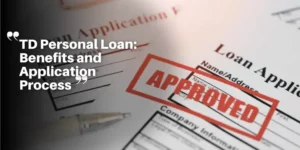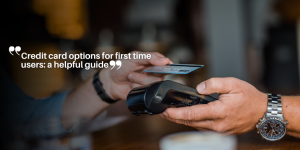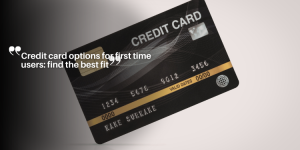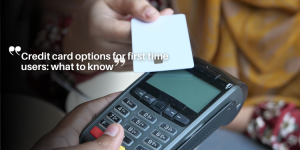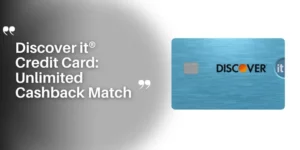Practical and Easy Guide to Using Your Credit Card Responsibly
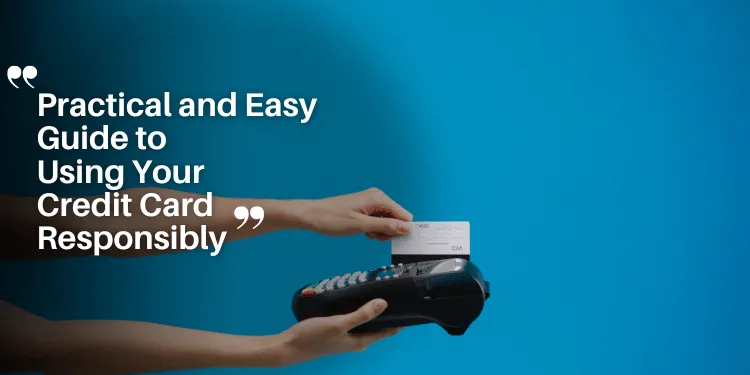
Understanding Credit Cards
What Are Credit Cards?
Credit cards allow you to borrow money from a lender to make purchases. When you use a credit card, you are essentially taking out a small, short-term loan that you will need to repay.
However, it’s important to understand that using a credit card does not increase your overall spending power or budget. The money you spend on your credit card is still money that you owe and will need to pay back, often with interest charges if you don’t pay the full balance each month.
To use credit cards responsibly, your credit card spending should align with your existing household budget and spending plan. Treating a credit card like “free money” and overspending can quickly lead to debt accumulation and financial troubles.
The Importance of Budgeting
Before using a credit card, it’s crucial to have a solid understanding of your income, expenses, and budget. Consumer.gov recommends the following steps for creating a budget:
- Add up your income sources
- Estimate your monthly expenses
- Categorize expenses as needs or wants
- Set financial goals
- Track your actual spending
With a clear budget in place, you can determine how much you can reasonably spend each month using your credit card while still covering necessary expenses and financial obligations.
Aligning your credit card usage with your budget helps prevent overspending and ensures you can pay off your balance in full each month, avoiding interest charges.
The Risks of Overspending
If your credit card spending exceeds your budget and income, you may face consequences such as:
- Accumulating credit card debt
- Paying high interest rates on outstanding balances
- Damaging your credit score due to missed payments
- Potential fees and penalties from your credit card issuer
Responsible credit card use involves being mindful of your budget and spending limits. By understanding how credit cards work and their potential impact on your finances, you can use them as a convenient tool while avoiding the pitfalls of overspending and debt accumulation.
Responsible Credit Card Usage
Paying Off Balances
To avoid hefty interest charges, it’s crucial to pay off your credit card balance in full each month. Interest compounds quickly, significantly increasing the cost of purchases made on credit. By settling the entire balance by the due date, you can enjoy the convenience of credit without accumulating debt.
Minimum Payments
If you’re unable to pay the full balance, make at least the minimum payment to prevent penalties. Missing the minimum payment can lead to increased interest rates, a lower credit score, loss of promotional offers, card cancellation, and loss of balance insurance coverage.
Statement Reviews
Regularly reviewing your monthly statements is essential for catching errors and protecting against fraud. Compare the listed transactions with your receipts, and promptly report any discrepancies to your card issuer. Online transactions typically appear within a few days, making it easier to monitor your spending.
Account Alerts
Many financial institutions offer electronic alerts that notify you when your available credit drops below a certain threshold. Enabling these alerts can help you manage your day-to-day finances and avoid over-limit fees.
Avoiding Credit Card Pitfalls
Warning Signs of Overspending
Credit cards can be a convenient financial tool, but overspending can quickly lead to debt and financial strain. Be on the lookout for these warning signs that you may be living beyond your means:
- Your credit card balance keeps growing month after month
- You’re consistently reaching or maxing out your credit limit
- You carry a balance from one billing cycle to the next, accruing interest charges
- You only make the minimum payment on your credit card statement
- You frequently take out cash advances using your credit card
Stop Using Credit Cards If Struggling
If you find yourself in one or more of these situations, it’s time to reevaluate your credit card usage. The first step is to stop relying on credit cards for purchases until you can get your finances back on track. Avoid applying for new credit cards, as this can further enable overspending and damage your credit score.
Instead, take a close look at your budget and identify areas where you can reduce expenses. This will free up funds to pay down existing balances and prevent further debt accumulation.
Consider Lower-Interest Alternatives
While getting a handle on your spending is crucial, you may also want to explore alternative borrowing options with lower interest rates than credit cards. Personal loans or lines of credit can provide access to funds at a lower cost, making it easier to pay off debt faster.
However, it’s essential to approach these options cautiously and have a solid repayment plan in place. Contact your financial institution to discuss the best options for your specific situation and to understand the terms and conditions fully.
Protecting Your Credit Card Information
To safeguard your credit card information and prevent unauthorized transactions, it’s crucial to keep your personal details confidential. Sharing sensitive information can make you liable for fraudulent charges, so take the following precautions:
Keep These Details Private
- Your credit card number
- Your personal identification number (PIN)
- The card verification value (CVV) or security code
- Passwords for online transactions
Consequences of Sharing Information
If you disclose your credit card details to others, you may be held financially responsible for any unauthorized purchases or transactions made using your account. This can lead to accumulating debt and damaging your credit score.
Monitor Your Accounts
Enable Account Alerts
Many financial institutions offer email or mobile alerts to help you keep track of your credit card activity. You can set up notifications for events like:
- When your available credit drops below a certain threshold
- Unusual spending patterns or large transactions
- Potential fraud alerts based on your typical usage
Staying informed about your account activity can help you detect unauthorized use early and take prompt action.
Review Statements Regularly
Make it a habit to carefully review your monthly credit card statements. Verify that all charges listed match your records and receipts. If you notice any discrepancies or unfamiliar transactions, report them to your card issuer immediately.
Protecting your confidential information and monitoring your accounts diligently are essential steps to avoid credit card fraud and maintain a healthy financial standing.
Getting Help with Credit Card Debt
Reach Out to Your Financial Institution
If you find yourself struggling with mounting credit card debt, the first step is to contact your financial institution.
They can provide valuable guidance on the options available to you for managing and repaying your debt. Don’t hesitate to initiate this conversation, as they are well-equipped to help you navigate this challenging situation.
Explore Debt Consolidation Options
One potential solution your financial institution may recommend is a debt consolidation loan.
This type of loan allows you to combine multiple credit card balances into a single monthly payment, often at a lower interest rate than your credit cards.
By consolidating your debt, you can simplify your repayment process and potentially save money on interest charges.
Seek Professional Assistance
If your credit card debt has become overwhelming, consider seeking assistance from a credit counseling agency or a qualified financial advisor. These professionals can provide personalized guidance and develop a customized plan to help you regain control of your finances. They may also be able to negotiate with your creditors on your behalf, potentially reducing interest rates or settling debts for less than the outstanding balance.
Prevent Further Credit Damage
Ignoring credit card debt can have severe consequences, such as:
- Damaging your credit score
- Incurring late fees and penalties
- Potential legal action from creditors
By taking proactive steps to address your debt, you can prevent further damage to your credit and avoid additional fees and charges. Remember, seeking help early is crucial to regaining financial stability and avoiding long-term consequences.
Stay Committed to Responsible Credit Usage
As you work towards resolving your credit card debt, it’s essential to adopt responsible credit habits moving forward. Regularly review your statements, make timely payments, and avoid accumulating new debt. By staying committed to responsible credit usage, you can rebuild your financial health and prevent future debt cycles.


